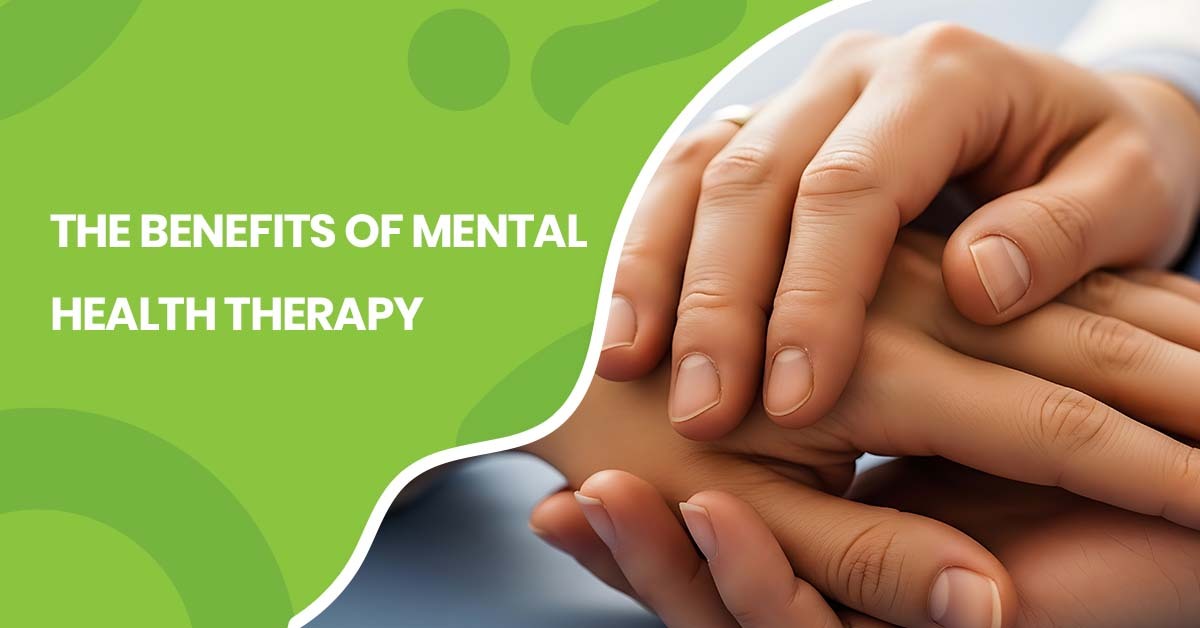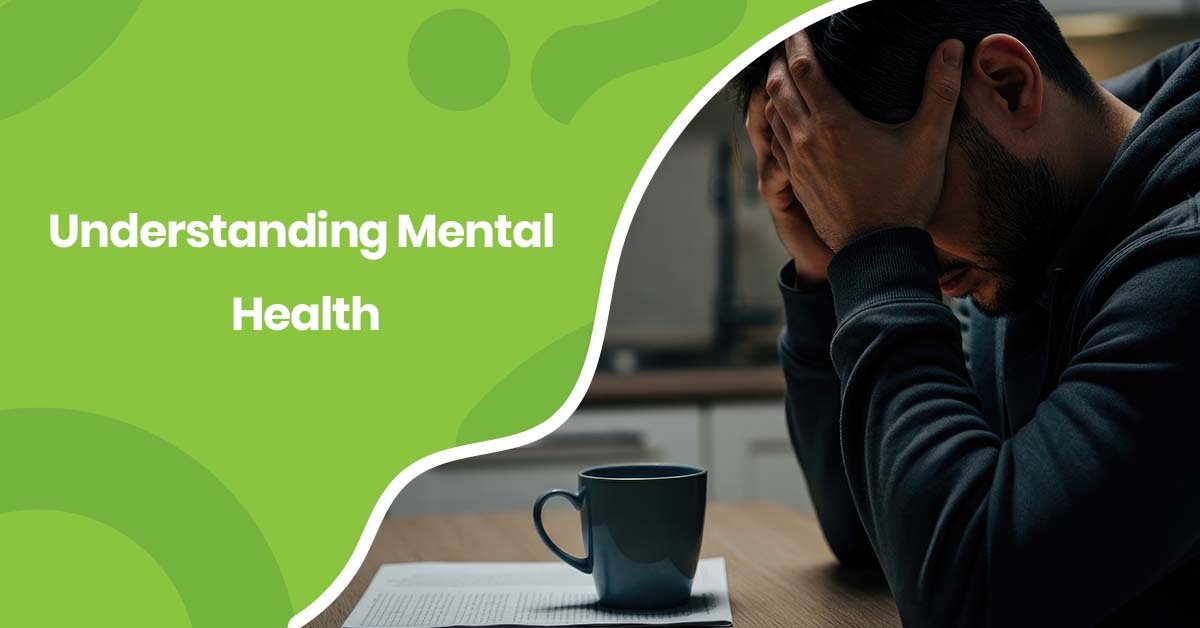
In today’s fast-paced and demanding world, mental health has become a top priority for individuals and families alike. Daily stress, anxiety, relationship challenges, and emotional overload can quietly impact overall well-being. Seeking professional support through mental health therapy offers a powerful, proven path toward healing, balance, and personal growth.
A Practical, Therapist-Informed Guide for St. Louis Residents Anxiety attacks can feel overwhelming, sudden, and physically intense. For many individuals, symptoms such as rapid heartbeat, shallow breathing, racing thoughts, dizziness, or a sense of losing control can make it difficult to feel grounded in the moment. During these episodes, learning practical coping strategies that help calm the nervous system can make a meaningful difference. One simple yet effective grounding method used by many therapists is using ice as a sensory distraction during anxiety or panic attacks. This technique focuses on engaging the senses to redirect attention away from anxious thoughts and back to the present moment. Below, we explore how this method works, how to use it safely, why it can be effective, and when professional support may be helpful. Understanding Anxiety Attacks and the Nervous System Anxiety attacks occur when the body’s fight-or-flight response becomes activated, even when there is no immediate danger. This response is controlled by the autonomic nervous system and can cause: Increased heart rate. Rapid or shallow breathing. Muscle tension. Sweating or chills. Difficulty concentrating. Feelings of fear or panic. When anxiety escalates, the brain focuses on perceived threats, often amplifying distressing thoughts. Grounding techniques work by shifting attention from internal anxiety to external physical sensations, helping the nervous system regulate itself. How Using Ice as a Sensory Distraction Can Help Using ice during an anxiety attack is a form of sensory grounding. Cold temperatures provide a strong physical sensation that captures attention and interrupts anxious thought loops. Step-by-Step: How to Use Ice During an Anxiety Attack Find Ice or an Ice Pack : Locate a piece of ice, frozen gel pack, or even a cold object from the freezer. Hold the Ice in Your Hand : Place the ice in your palm or wrap it lightly in a cloth if the cold feels too intense. Focus on the Sensation : Pay close attention to: The cold temperature The texture of the ice The contrast between the cold ice and your body’s warmth Practice Deep, Controlled Breathing : While holding the ice: Inhale slowly through your nose Exhale gently through your mouth Focus on the rhythm of your breath Stay Present : Notice changes as the ice melts. Observe sensations without judgment. This mindful awareness helps anchor you in the present moment. This combination of sensory input and breathing can calm the nervous system and reduce the intensity of anxiety symptoms. Why Sensory Distraction Works for Anxiety Sensory grounding techniques, like holding ice, work because they: Interrupt racing or intrusive thoughts Engage the brain’s attention networks Reduce emotional overwhelm Encourage mindfulness and present-moment awareness Cold exposure may also stimulate the vagus nerve, which plays a role in calming the body and regulating stress responses. For some individuals, this can lead to a noticeable reduction in panic symptoms. Combining Ice with Cognitive Techniques While sensory distraction can provide temporary relief, anxiety often stems from negative or irrational thought patterns. Alongside grounding, it can be helpful to gently challenge anxious thoughts. Reframing Anxious Thoughts Ask yourself: What evidence supports this thought? What evidence contradicts it? Is there a more balanced or realistic way to view this situation? Replacing catastrophic thoughts with more realistic ones can reduce long-term anxiety and prevent future episodes from escalating. Important Considerations and Limitations It’s important to remember that using ice as a distraction technique does not work for everyone. Anxiety management is highly personal, and different tools resonate with different individuals. If you notice that: Ice does not reduce your symptoms Anxiety attacks are frequent or worsening Panic interferes with daily life It may be beneficial to explore additional grounding strategies or seek professional support. Other Helpful Grounding Techniques to Explore If ice is not effective, alternatives include: 5-4-3-2-1 grounding technique Slow diaphragmatic breathing Progressive muscle relaxation Guided mindfulness exercises Physical movement or stretching A mental health professional can help identify which strategies are most effective for your unique needs. When to Seek Professional Mental Health Support While self-help techniques are valuable, ongoing anxiety may require structured therapeutic support. A licensed mental health therapist can help you: Understand anxiety triggers Learn coping and grounding skills Address underlying stressors or trauma Develop long-term emotional regulation strategies Professional therapy provides a safe, supportive environment to explore anxiety and regain a sense of control and confidence. Mental Health Therapy in St. Louis, Missouri STL Mental Health is a trusted mental health therapy practice located in Creve Coeur, Missouri, serving individuals and families throughout the St. Louis area. Services Offered: Anxiety and stress management Depression therapy Individual therapy Couples counseling Family therapy Therapy for children and teens The practice is supported by a team of licensed mental health therapists who work collaboratively to provide compassionate, evidence-based care. About STL Mental Health STL Mental Health (Pearlman & Associates) specializes in supporting individuals facing anxiety, depression, relationship challenges, and other mental health concerns. Location: 655 Craig Road, Suite 300 St. Louis, MO 63141 Phone: 314-942-1147 Email: bryan@stlmentalhealth.com 👉 Learn more or schedule an appointment: https://www.stlmentalhealth.com/contact-us/ Additional Trusted Resources For further reading on anxiety management and grounding techniques, explore: Be Present Ohio – Ice Cube Hack for Panic Attacks Psych Central – Vagus Nerve Cooling for Anxiety Mayo Clinic Health System – Tips to Ease Anxiety Healthline – Ways to Relieve Stress and Anxiety These evidence-based resources provide complementary insights alongside professional therapy. Final Thoughts Managing anxiety is not a one-size-fits-all process. Techniques like using ice as a sensory distraction can offer meaningful, immediate relief during moments of distress. However, long-term healing often involves understanding thought patterns, learning coping strategies, and seeking professional guidance when needed. If anxiety is impacting your quality of life, connecting with a licensed mental health therapist in St. Louis can be an important step toward lasting emotional well-being.

I’m glad you’re interested in addressing mental health stigma. Reducing stigma is essential for building healthier, more supportive communities in St. Louis and beyond. Mental health conditions affect millions of Americans each year, yet many people still hesitate to seek help because of fear, misunderstanding, or judgment.

Healthy romantic relationships are built on emotional safety, trust, and mental well-being. In St. Louis, more couples are recognizing the importance of prioritizing mental health to strengthen communication, reduce conflict, and create deeper connections. Whether you’re navigating stress, anxiety, or relationship challenges, understanding how mental health impacts romance is the first step toward lasting love and stability.
Making mental health a priority as a family is crucial for the overall well-being and happiness of each member. In today’s fast-paced and demanding world, it is easy to overlook the importance of mental health, but prioritizing it can lead to stronger family bonds and increased resilience in the face of challenges. Open Communication: Open communication is key. Creating a safe and non-judgmental space where family members can share their thoughts, feelings, and concerns is vital. Encouraging regular conversations about emotions and mental well-being helps to normalize discussions around mental health and encourages everyone to be more self-aware. By fostering an environment of trust and understanding, family members can support each other through difficult times and celebrate each other’s successes. Self-Care: Promoting self-care practices within the family is another essential aspect of prioritizing mental health. Encouraging activities that help reduce stress and promote relaxation, such as engaging in hobbies, practicing mindfulness, or spending time in nature, can have a positive impact on everyone’s mental well-being. Family members can set aside dedicated time for self-care activities and support each other in maintaining these routines. Mindful of Screen Time: Taking breaks from technology and screens as a family is also crucial. Excessive screen time can contribute to feelings of anxiety, isolation, and disrupted sleep patterns. Establishing tech-free zones or specific time limits for screen usage can help create a healthier balance and encourage more face-to-face interactions. This provides an opportunity for deeper connections, strengthening family relationships, and improving overall mental well-being. Healthy Habits: Building healthy habits together, such as regular exercise and nutritious eating, can also contribute to positive mental health outcomes. Engaging in physical activities as a family not only promotes physical well-being but also releases endorphins, which can boost mood and reduce stress. Additionally, adopting a balanced and nutritious diet can improve brain function and energy levels, positively impacting mental health. Professional Help: Lastly, seeking professional help when needed should be normalized within the family. Mental health challenges can affect anyone, and it is essential to eliminate the stigma surrounding therapy or counseling. Encouraging family members to seek professional support if they are struggling can lead to early intervention and improved mental well-being for all. Take Away: Making mental health a priority as a family involves open communication, practicing self-care, limiting screen time, building healthy habits, and normalizing professional help when needed. By collectively valuing and prioritizing mental well-being, families can create a nurturing environment that supports each member’s mental health and overall happiness. Additional Reads: https://www.samhsa.gov/families https://www.focusonthefamily.com/parenting/what-is-mental-health-and-why-is-it-important-for-your-family/ https://www.wtcsb.org/5-ways-family-members-can-promote-mental-wellness/ https://www.connecticutchildrens.org/behavioral-health/mental-health-tips-for-parents/ About Us: https://www.stlmentalhealth.com is a St. Louis mental health therapy practice in Creve Coeur, Missouri. The practice has a team of mental health therapists who provide therapy and counseling services to kids, teens, adults, couples, and families. Pearlman & Associates specializes in stress, anxiety, depression, relationships, and other mental health related issues and concerns. The practice can be reached by phone at: 314-942-1147, by email at: bryan@stlmentalhealth.com or on the web at: https://www.stlmentalhealth.com/contact-us/. The office is located at: 655 Craig Road, Suite 300, St. Louis, MO 63141.

The understanding and treatment of mental health have come a long way throughout history. What was once surrounded by stigma, fear, and misunderstanding is now increasingly recognized as an essential part of overall well-being. Today, mental health care in the United States, including St. Louis, Missouri, focuses on compassion, science, and accessibility.

Mental health struggles can feel overwhelming, isolating, and deeply personal. Many people in St. Louis, Missouri quietly face anxiety, depression, emotional stress, trauma, and relationship challenges every day. At Pearlman & Associates, we believe no one should have to walk this journey alone.

Mental health has gained major attention in recent years, yet many important aspects are still misunderstood or overlooked. While open conversations about mental well-being are growing, there remains a gap in awareness around how mental health truly affects our daily lives, relationships, physical health, and long-term success.

Why Mental Health Matters in Today’s Busy World In today’s fast-paced and demanding world, prioritizing mental health has become more important than ever, especially for individuals, families, and professionals in St. Louis, Missouri. Daily stress, emotional overload, and constant digital pressure can quietly impact your well-being.

Mental health is an essential part of overall wellness, and small daily practices can create powerful long-term change. Today’s mental health tip focuses on the practice of mindfulness meditation, a proven technique that supports emotional balance, stress reduction, and mental clarity for individuals of all ages.